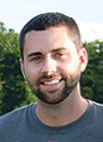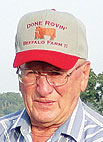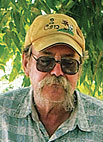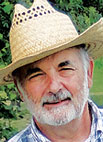Bringing the Sale Home
Kent and Clesha Reading run a large cow/calf operation in Ozark, Ark. They use fall calving with Angus, Charolais and Black Simmental bulls with their commercial herd. Kent prefers Angus and Black Simmental in order to get black calves and Charolais to help produce a good crossbred mix with greater thickness, pounds and muscle. The Black Simmental also contribute greater muscle mass. Calves are sold at 600 pounds after working them in the spring for worms, lepto, castration, black leg, and respiratory issues with a six-way respiratory vaccination.
Riding for More
It wasn’t that long ago that Ellen Replogle found herself listening to missionaries speak at her home church, Oak Grove Baptist in rural Laclede County, about the fantastic things a person can accomplish when they share their personal passion in a way that promotes the love of God. Ellen recalled, “They talked about different people and their passions, one that established a sports mission program overseas and another whose love of reading helped start a literacy program that teaches people to read. I remember sitting in that church pew thinking ‘but what can a 50-year-old housewife who has no intention of traveling to another country, possibly do?’”
Beefing Up Grass Quality
Jon and Lindsey Cartwright of Webster County, both grew up with agricultural backgrounds, an important aspect of their lives that they are proud to share with their young children, 2 1/2-year-old son, Yates and 7-month-old daughter, Yardley.
Bidding for the Best
Randall Pemberton grew up around the cattle business. His dad, Duane, has been in the business of buying cattle for 50 years and Randall said, “I just came in and started helping.”
Breeding a Healthy Reputation
While a young man, Larry Hacker worked for a poultry company and met a farmer’s daughter named Nelda. Larry said, “At the time she was still a freckle-faced kid in the eighth grade but soon turned in to the beautiful young woman I married.”
300 Days of Savings
When Garry Clements read about the 300 Days of Grazing System four years ago that was being implemented on beef cattle farms, he decided the program could work with his kids, as well as the rest of the goats browsing on his 70-acre farm. Tin Can Hill Ranch, located in Damascus, Ark., has continued to see savings and herd health benefits ever since.
Catering to a Minority
The road that brought Mike and Mary Jo Green to raising and selling locally grown sustainable sheep was paved with a love of good food. While Mike was raised in New York and Mary Jo in Arkansas, the couple met at a party in California. Wanting to impress the young lady, Mike invited her to go horseback riding on their first date only to discover Mary Jo owned her own horses. The ploy worked however, because the couple married.
Setting New Standards
From commercial herds to show-driven breeding programs, Josh Stephans of Elkland, Mo., has experienced a lot for a young farmer. “I’ve seen many different management practices,” shared Josh. “I now know how I want to develop my herd and management program.”
A Lot of Good Hours Left
According to Jim Vavruska, “Yes dear. That’s the key to staying married for 50 years.” Jim and his wife, Pat, own a 142-acre dairy farm 4 miles west of Rader, Mo. The couple has been married for over 50 years and they’ve milked cows just as long. If you do the math, the Vavruskas have made over 36,500 trips to the milk barn, and it’s all coming to an end when spring arrives. Four years ago, the couple sold their Holstein bull and bought a registered Angus bull. The result, a very slow transition to a stock-cow operation that has narrowed their herd of Holsteins down to 14 milking cows and 6 dry, in preparation for their retirement. In addition to their dairy cows, the pair has built up a herd of about 50 stock cows through their method of transition.
Engineering the Perfect Flock
Bryan Nelson believes operating a farm takes a lot of heart and he exudes plenty of passion when it comes to caring for his flock of sheep. But this shepherd also utilizes his off-the-farm knowledge to guide his farming decisions. “I am a ceramic engineer from the University of Missouri-Rolla. I have spent a lot of my career in research and science. So the genetics fascinate me,” Bryan explained. Bryan, his wife Debra, along with daughters, Sarah and Abbie, raise Fullblood, Purebred and Percentage Dorper sheep on their 27-acre farm in Bolivar, Mo. In 2005, the family moved to Bolivar from Portland, Ore., to fulfill Bryan’s childhood dream of returning to the Show-Me state and owning a farm.











